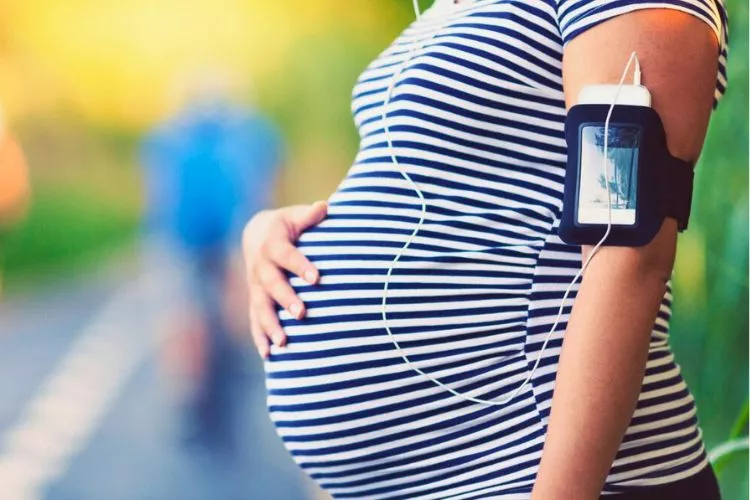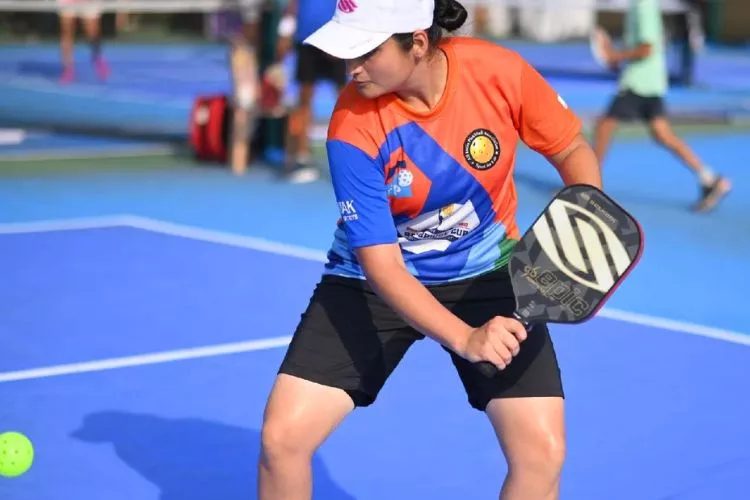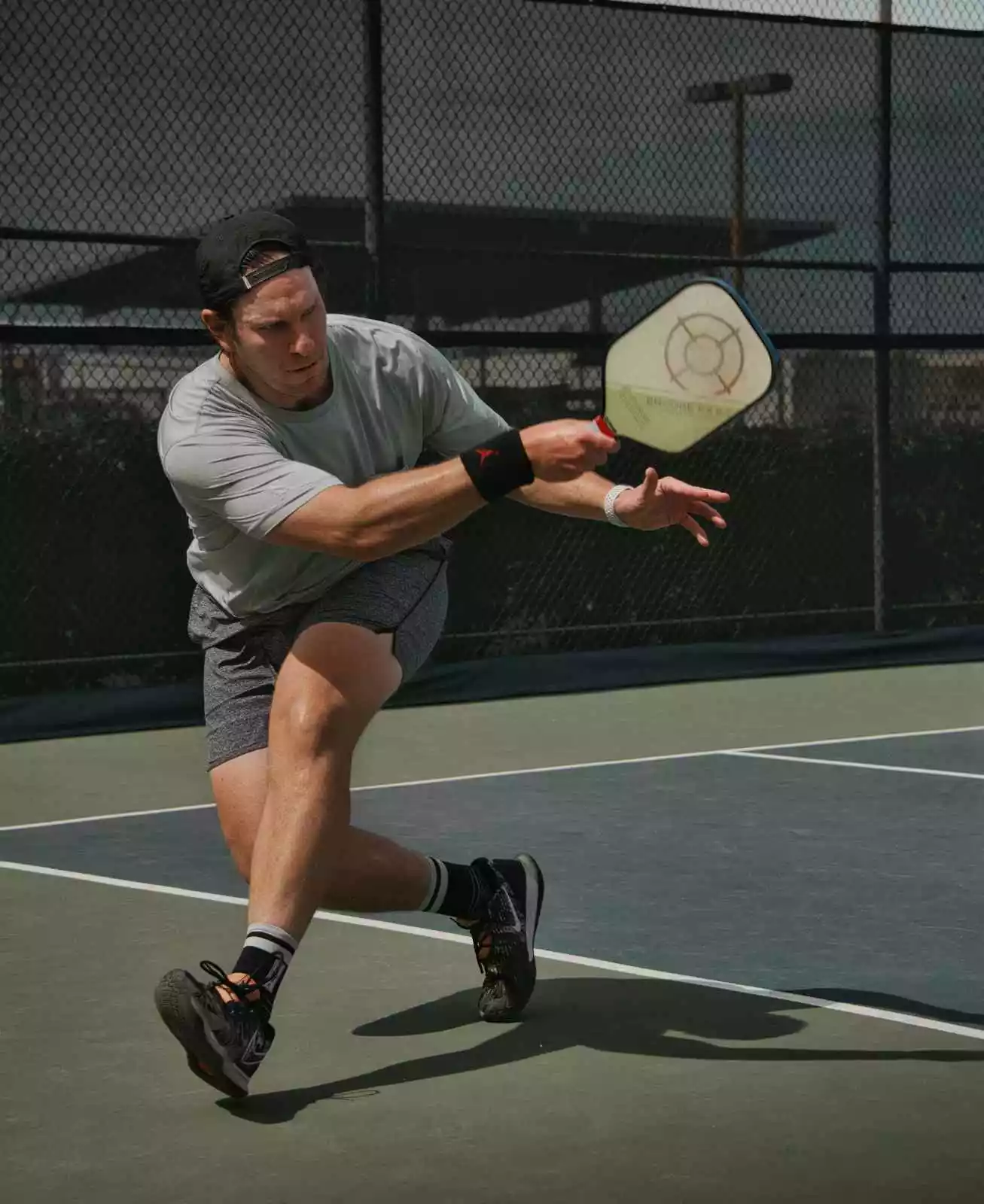For expecting mothers looking to maintain an active lifestyle, determining which activities are safe can be challenging.
Pickleball is a nice sport to stay active, but can you play pickleball while pregnant?
Well, this article delves into the feasibility and safety of playing pickleball while pregnant.

Our exploration, based on expert advice, real-world testimonies, and medical insights, will help pregnant women understand the pros and cons in their unique context.
Let’s unpack this compelling topic.
Can you play pickleball while pregnant?
Yes, you can play pickleball while pregnant, but it’s critical to do so carefully and consult your doctor before participating.
Pregnancy impacts everyone differently, and physical activities should always consider individual health status and comfort level.
Pickleball involves quick movements and agile footwork, which may pose a risk as balance can be affected during pregnancy.
If approved by a healthcare provider, and assuming you were fit and playing before your pregnancy, it’s usually safe to continue.

However, over time you may need to modify the intensity and duration of your play. Always prioritize listening to your body, staying hydrated, and avoiding overheating.
Alongside your regular prenatal checkups, always report any complications like dizziness, shortness of breath or discomfort that may arise during or after play.
Therefore, while pickleball isn’t entirely off-limits during pregnancy, it must be approached with caution and personal wellbeing in mind.
Can you play pickleball while pregnant first trimester?
Yes, generally, you can play pickleball during the first trimester of pregnancy, if you have been playing prior to pregnancy and are experiencing a normal pregnancy.
This period often has less physical discomfort, but symptoms like fatigue and nausea can impact your ability and desire to play.
It’s important to pace yourself, stay hydrated, and avoid overheating. Consulting with your healthcare provider is essential because they best understand your health status.
Can you play pickleball while pregnant second trimester?
Again, assuming you have your doctor’s approval and were playing pickleball before pregnancy, you can likely continue during the second trimester.
In this phase, you might find yourself physically more comfortable as morning sickness often decreases, and energy levels increase.
However, remember that your body is changing; your center of gravity is shifting which can impact your balance. Listen to your body’s cues and adjust your play accordingly.
Can you play pickleball while pregnant third trimester?
In the third trimester, playing pickleball can become challenging. The physical changes due to progressing pregnancy (increased belly size, altered balance, and potential fatigue) may make agile movements more difficult and sometimes risky.
If you choose to continue, it’s paramount to play at a reduced intensity, avoid high-risk movements, and maintain hydration. Once again, consulting your healthcare provider for guidance is crucial.
What activities should you avoid when pregnant?
When pregnant, numerous sports should be avoided to ensure the safety of both the mother and baby. Primarily, these include:

- Contact sports like basketball, hockey, and soccer. These sports come with a high risk of unexpected, high-impact contact which could harm the mother or the baby.
- Sports with an inherent risk of falling such as gymnastics, downhill skiing, snowboarding, ice-skating, outdoor cycling, horseback riding, bungee jumping, and rollerblading.
- Scuba diving, which can put the mother and baby at risk due to the pressure changes.
- Vigorous racket sports, it is safer to play doubles instead of singles.
- Higher intensity exercises or activities like hot yoga, wrestling, and fight club.
Remember, each pregnancy is unique, and everyone’s well-being and comfort levels are different. It’s always essential to consult with a healthcare provider.
When should you stop playing when pregnant?
When deciding when to stop playing or exercising during pregnancy, it’s essential to consider personal circumstances and listen to your body.

According to the CDC, moderate-intensity physical activity is safe for generally healthy pregnant women, but individual situations may vary. Here are some factors that warrant stopping or modifying exercise during pregnancy:
- Your healthcare provider advises you to stop or modify exercise due to specific pregnancy complications or health concerns.
- You’re experiencing symptoms like vaginal bleeding, dizziness, strong contractions, or decreased fetal movements.
- You find it challenging to maintain proper form, risking injury, especially in sports with higher risk for falls, contact, or balance issues.
- Your energy levels deplete, making it difficult to maintain the same activity level.
- Your body signals discomfort or pain when performing a particular activity.
Always consult your healthcare provider for personalized recommendations and guidelines for exercise during pregnancy. Adapt activities as needed, ensuring safety and comfort.
What are the most critical weeks of pregnancy?
The most critical weeks of pregnancy refer to those when significant development and changes happen, making the fetus more vulnerable to outside factors.
The first trimester, defined as up to the 14th week of pregnancy, is one such critical phase.
This period witnesses the formation of major organs and systems including the brain, spinal cord, and heart. Harmful exposures during this time have the greatest chance of causing major birth defects.

Another critical period is before the woman might even be aware of her pregnancy, commonly the first 2-8 weeks.
Some sources suggest that as many as 10 to 15 percent of confirmed pregnancies might end in pregnancy loss during this early period.
However, it’s important to note that there’s not one specific week that’s most critical in pregnancy. Different periods have different susceptibilities to potential harm from exposures at various stages of pregnancy.
Although some weeks are regarded as more critical than others, ideally, a woman should receive proper prenatal care throughout the entire pregnancy to ensure optimal health for herself and her baby.
Conclusion:
Playing pickleball, like many other moderate sports, can generally be enjoyed during pregnancy, but it’s important to consider personal comfort, energy levels, and potential risks.
As the pregnancy progresses, increased caution and modifications might be necessary.
However, every pregnancy is unique, so the most important rule is to consult a healthcare provider and listen to your own body, adjusting activities as required to ensure safety and comfort during this extraordinary time.

Pickleball’s more than a game to me—it’s a passion. I write, sharing its highs and lows, the thrills and the lessons. Some tales might draw you to the court, while others give a hint of the game’s magic. So, curious about my journey? Ready to dive deep into the world of pickleball with me? Let’s go.
